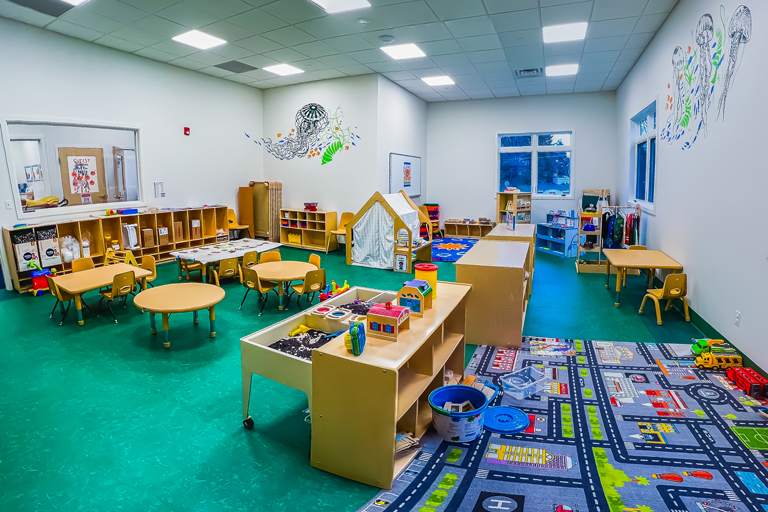
At Westview Child Care Center, we take immense pride in nurturing young minds and fostering a warm, inclusive environment. As we reflect on our journey, we are thrilled to announce a new chapter in our story—the opening of our second Preschool classroom, the Jellyfish Room in January 2024. This expansion is a testament to the popularity of our program and our commitment to providing the best possible learning experience to your little ones.
One of the cornerstones of our philosophy is recognizing the unique developmental needs of each child. With the introduction of the Jellyfish Room, we are excited to implement distinct age- and skill-related classrooms, specifically tailored to the needs of our youngest group of preschool-aged children, PK3. This deliberate division between younger preschoolers and pre-kindergarteners carries numerous benefits for your child:
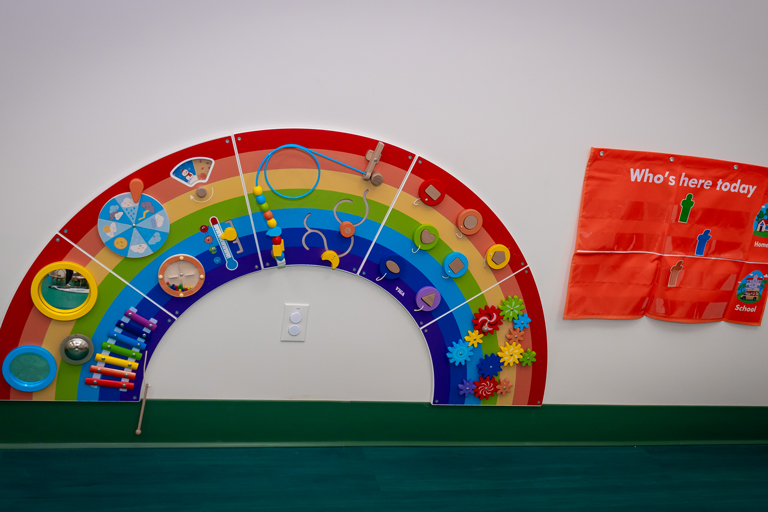
Age-specific classrooms allow our talented teachers to tailor their lesson plans and teaching methods, ensuring they align perfectly with the developmental milestones of PK3 children (ages 2 years 8 months to 3) versus pre-kinder children (4- and 5-year-olds). In our 3-year-old classroom, individualized learning means focusing on basic cognitive skills and interactions. For instance, activities might include storytelling, simple puzzles, and collaborative play to enhance language development and social bonding. In contrast, pre kinder children are introduced to more complex cognitive challenges. They engage in activities such as structured storytelling where they not only listen but also begin to narrate their own stories, honing their language skills and creativity simultaneously. This personalized approach fosters a deeper understanding and love for learning.
Young children thrive in environments where they can interact with peers at similar developmental stages. For 3-year-olds, social and emotional development involves learning to share toys and take turns, encouraging empathy and cooperation. Pre-kinder children delve deeper into emotional understanding. They might engage in group discussions about feelings or comfort a friend, fostering emotional intelligence and conflict resolution skills. By grouping children of similar ages, we create a supportive social setting that nurtures friendships, empathy, and emotional growth while reducing peer conflict and frustration—building a strong foundation for future relationships.
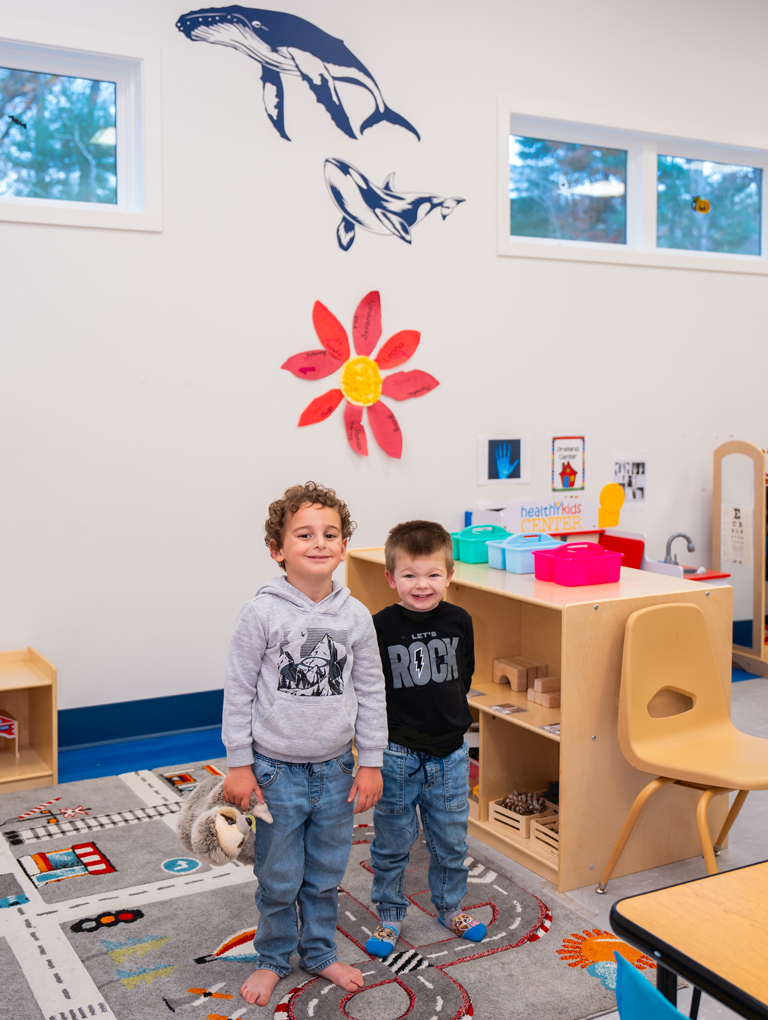
In classrooms tailored to their age group, children are more likely to actively participate, ask questions, and express themselves comfortably. Confidence building in 3-year-olds includes celebrating small achievements like successfully completing a puzzle. Pre-kindergarteners, on the other hand, engage in more structured activities like class jobs and show-and-tell sessions, which boost their self-assurance as they articulate thoughts, ideas, and stories in front of their peers. Our confidence-building atmosphere in both classrooms empower our young learners to explore their interests, enhancing their overall cognitive and emotional development.
Potty training is a significant milestone in a child’s life. At Westview this journey typically begins in our 2-year-old program, however, we have seen several of our young preschoolers who are still in a transitional period. For PK3 children in the Jellyfish Classroom, our experienced staff creates a supportive and encouraging environment for children, maintaining a consistent routine and structured approach to potty training, with regular prompting and classroom trips to the bathroom built into the daily schedule— making the process more natural and less intimidating. With this specialized support for potty training, we are preparing our children for independent toileting as they enter the pre-kinder classroom.
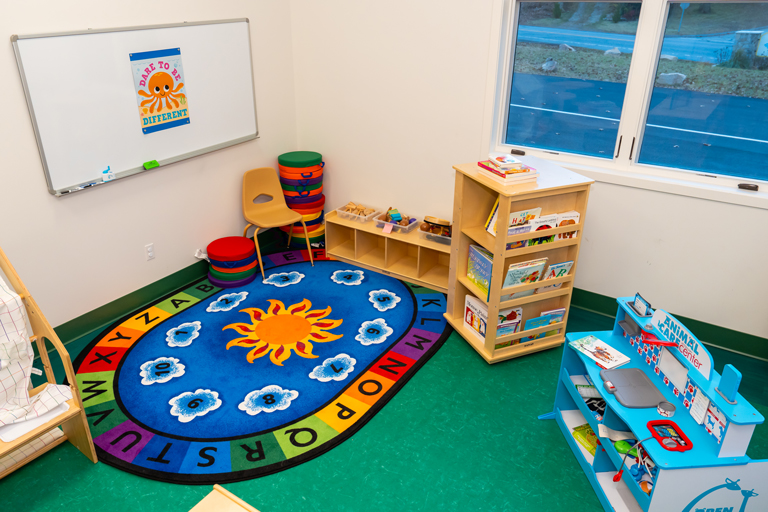
Age-specific classrooms allow our talented teachers to tailor their lesson plans and teaching methods, ensuring they align perfectly with the developmental milestones of PK3 children (ages 2 years 8 months to 3) versus pre-kinder children (4- and 5-year-olds). In our 3-year-old classroom, individualized learning means focusing on basic cognitive skills and interactions. For instance, activities might include storytelling, simple puzzles, and collaborative play to enhance language development and social bonding. In contrast, pre kinder children are introduced to more complex cognitive challenges. They engage in activities such as structured storytelling where they not only listen but also begin to narrate their own stories, honing their language skills and creativity simultaneously. This personalized approach fosters a deeper understanding and love for learning.
Our dedicated team of educators craft curriculum that aligns with the specific needs and abilities of the PK3 children and pre-kinder children. In the 3s classroom, the curriculum centers around fundamental concepts like colors, shapes, and basic counting. In pre-kindergarten, the curriculum becomes more comprehensive, introducing early literacy and numeracy skills. For example, 4-5-year-olds might explore beginner reading, phonics, and simple math problems. By addressing age-appropriate topics and challenges, we lay the groundwork for the next stage of their educational journey.
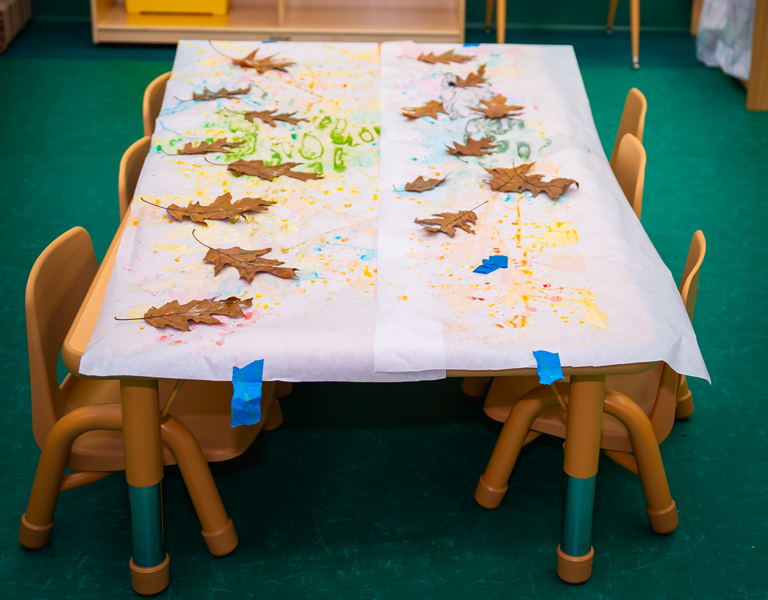
As children progress through our age-appropriate classrooms, they develop the skills necessary for a successful transition to formal schooling. For our 3-year-olds, the focus is on those foundational skills like following routines and basic social etiquette, paving the way for a smooth transition to pre-kindergarten. Pre-kindergarteners, having progressed towards mastery of these skills, focus on more advanced tasks like writing their names, recognizing sight words, and engaging in collaborative projects, preparing them for a seamless entry into formal settings. By understanding and mastering age-appropriate skills, they gain the confidence needed to excel in their future academic endeavors.
Looking ahead, our goal for the new year is not only to introduce the Jellyfish Room but also to continue to enhance our learning environments and nurture the curiosity and creativity of all our students. With a nuanced understanding of the developmental differences amongst preschool-age children, the Westview Child Care Center ensures that our classrooms are finely tuned to cater to the unique needs of each child. While there are certainly benefits to mixed-age groups, our strategy of recognizing and embracing the differences between PK3 children and pre-kinder children creates an environment where every child can thrive, learn, and grow at their own pace. We firmly believe that by providing a solid educational foundation, we are shaping future leaders, thinkers, and innovators.
We are deeply grateful for your trust in us as partners in your child’s education. As we embark on this exciting new chapter, we invite you to join us in this journey of growth, discovery, and learning at Westview Child Care Center. Please reach out to us at contact@westviewchildcare.com if you would like to join our new preschool classroom (ages 2 years 8 months to 3), or if you have a pre-kinder child (4-5-year-olds) looking to prepare for their foray into formal education.
Posted on November 15, 2023
by Katy Holzer, Director